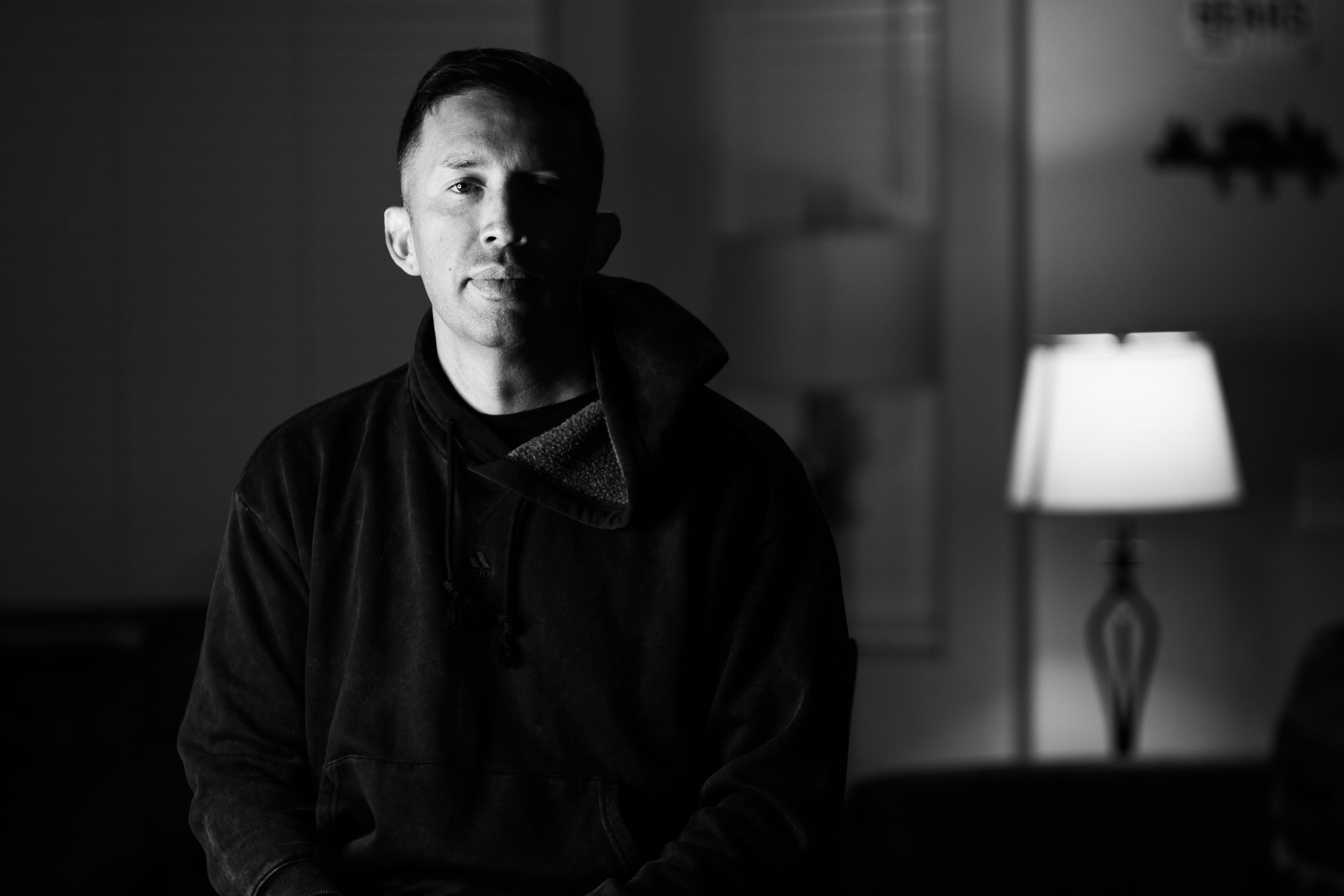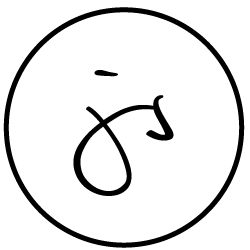
There is a story
of a lone hero.
Do you know it?
A narrative that highlights
the rugged individualist.
The one who pulls themselves up by their bootstraps and does it all.
On their own.
Often celebrated, this story is (at first glance) enticing, perhaps even seductive.
And yet, when you look more closely the cracks in the story start to show.
The first of which, from my view, is that this story puts a lot of pressure on an individual to be courageous.
Pressure that I have come to believe may be unnecessary.
Second, the courageous path to achieving personal greatness, and becoming the person we ultimately want to be, isn’t a path taken alone.
It’s a path taken together, in community.
Whether it’s one small caring act of another person (a teacher, a mentor, a friend, a colleague, or even a stranger),
Or a group of people encouraging us along the way,
Community is a powerful catalyst for finding the courage, grit, and faith to pursue what we care about, particularly when times get tough.
Community opens the door for us to step into our potential.
And so I remain passionate about challenging this story - dispelling the myth of the lone hero.
Focusing my work on exploring how we might take unnecessary pressure off of individuals to be courageous.
And how we might work toward creating the conditions that unlock courage through caring and supportive communities.
with that, here is my story
It's a story (a collection of small anecdotes really) that highlight the impact that some of my teachers, mentors and those who believed in me have had on my life.
And the way that felt most true and authentic to share it was to say thank you.
I certainly didn’t do it all on my own. I couldn’t.
I did it with the support, kindness, and generosity of community.
To all of you who have helped me, believed in me, and deepened my understanding of how to live well in this one life we are given,
Thank you.
-Joshua
Ps. There are too many of you to name here. For the sake of brevity I chose a teacher or mentor from a few select chapters of my professional growth, including: becoming a coach, studying courage, spending a year investigating human potential at UPenn, and my deep dive into the world of meditation.
For the rest of you, you know who you are. Thank you!
SEPTEMBER 2008
A phone call can change your life.
Graduating college during the height of an economic recession, with dim prospects for employment, my phone rang. On the other end was a friend encouraging me to apply for a job called a health coach. A job I had never heard of.
Her pitch was simple and alluring. I could use my psychology degree, my passion for helping people, and my experience as a personal trainer, to work with individuals to realize their health related goals.
After hanging up the phone, I applied, got the job, and for the next 3 years I coached. 13 people a day, 5 days a week. My oldest client was 95, my youngest was 18. I learned by doing; having authentic conversations with people from all over the country, diverse professional sectors, who lived in urban and rural communities, and who had wildly different life experiences. They shared their stories, motivations, challenges, and their dreams.
A few thousand hours, and a good deal of professional coach training later, I moved into the role of Coach Mentor and was part of a small team that mentored our staff of health coaches across the country. I listened to 40-50 recorded coaching sessions every month, was exposed to a myriad of coaching styles, and had the opportunity to reflect and discuss the ingredients that make powerful coaching conversations with the coaches having them.
Some might (facetiously) call this introduction a baptism by coaching fire. And in a way it was, but it was also some of the most valuable education I’ve ever received. Meeting with people from all walks of life helped me see directly how the right conditions, including a caring and authentic conversation about what matters, can unlock human potential.
Julie Somerville
At the center of it all was a Master Coach named Julie Somerville. She taught me what it meant to listen deeply, to look at asking questions as a high art, and exposed me to the possibility that conversations can be a graceful and powerful dance when they are done well.
Her way of being, her passion for the craft, and her deep well of empathy cracked my heart open. I fell in love with coaching and I haven’t looked back since.
2015
Adventures with a positive psychology pioneer
“If you really want to understand courage and fear in coaching maybe you should consider interviewing some of the world’s leading coaches and asking them about it.
You could even call your thesis, What Are Coaches Afraid Of? Or something like that.”
Dr. Robert Biswas-Diener
This is a snippet from a conversation with my thesis advisor and mentor, Dr. Robert Biswas-Diener.
It was 2015.
I had left my coach mentor position to pursue a Master Degree in Positive Psychology at the University of Pennsylvania.
Which meant for a year 35 of us from around the world had come together to pursue some of life’s deeper questions.
Questions about what makes life worth living. And what contributes to flourishing.
We had the unique opportunity to explore these questions with some of the leading psychologists and researchers in the field, including Dr. Martin Seligman, Dr. Angela Duckworth, Dr. Scott Barry Kaufman, and Adam Grant.
Over the year I became increasingly fascinated with the link(s) between courage and a life well lived.
This intersection led me to Robert.
And there we were engaged in an ongoing dialogue about courage, coaching, and what might be the best path forward in the biggest academic project of my life.
And it was that phone call which ultimately acted as a tipping point that led to this small exploratory piece of research: What Are Coaches Afraid Of? Courage and the Path to Coaching Mastery.
I had never done qualitative research. Robert knew this.
I didn’t know if “the world’s leading coaches” would talk to me. Robert (likely) knew this too.
So could I do it?
I wasn’t sure.
It was risky. Uncertain.
And yet here was one of the world’s leading coaches, challenging me to get outside of my comfort zone, to ask new questions, and to explore the possibility of discovering insights about courage in coaching that might offer a positive contribution to the field in some small way.
He believed I could.
The work we did together led to insights that I won’t soon forget.
Choosing courage over comfort is often a prerequisite for living a more meaningful and fulfilling life.
01
Courage is also a prerequisite for mastery in coaching. In one coach's words: you’re not going to get there without being courageous.
02
To this day these insights continue to fuel my work - the ongoing exploration of living a courageous life.
Thank you Robert.
2014-PRESENT
The search for human potential
While I was attending MAPP, Dr. Scott Barry Kaufman was heading up the Imagination Institute at Penn's Positive Psychology Center.
During one of our courses he came in to give a lecture on imagination, creativity, and the incredible work they were doing at the Institute.
Scott shared a lot of illuminating research with us that day, but what stood out to me above all else was his deep belief in human potential and his genuine desire to help people actualize it.
As a coach, interested in helping people to unlock their potential (as well as research-backed approaches for doing so), Scott's work deeply resonated.
In 2015 I ran into Scott at the World Congress on Positive Psychology. I was presenting the research on courage in coaching for the very first time and was quite nervous.
The room was packed
Just before things kicked off I spotted Scott, in the front row.
He looked at me and mouthed the words "you got this!"
Smiling, he gave me a thumbs up.
Again I was struck by how he was embodying what he talked about.
Encouraging a grad student in what felt like a BIG moment.
He didn't have to, but this is just who Scott is. After the talk we sat on the floor at the back of the room, joked, and caught up.
Fast forward to 2023 and I've had the pleasure of playing a small role in working with Scott and his team at the Center for Human Potential. Together we built a coach training program grounded in the new science of Self-Actualization.
Eight years after the World Congress, Scott and I met up at another conference. This time, Scott was the closing keynote, inspiring a room full of coaches and leaders as he introduced Self-Actualization Coaching and the work he has dedicated his life to - helping people all over the world to realize their potential. Afterward we (once again) sat at the back of the room, joked, and connected.
It can change your life when someone believes in you, and sees your potential.
Thank you Scott.
Sometime during graduate school I got interested in meditation and the effects that contemplative practices can have on our brain, our physiology, and our lives in general.
I read every meditation book I could get my hands on, attended workshops, retreats, and even moved to the Bay Area so I could learn from some of the best meditation teachers in the U.S. Teachers like: Rick Hanson, Jack Kornfield, Oren Jay Sofer, Shauna Shapiro, Rhonda Magee, Thupten Jinpa, Kelly McGonigal, Leah Weiss, James Doty, and others.
Along the way I met Dr. Judson Brewer (Jud) on my first 7-day retreat.
I came to the retreat to learn about his groundbreaking work around meditation and habit change and to record our first-ever podcast conversation.
Afterward Jud offered to help me deepen my meditation practice as a mentor and a coach.
“I will work with you on two conditions. First, you practice like your hair is on fire. Second, you pay it forward. If you can commit, we can begin our work together.”
I did, and we did.
I met with him every Tuesday for over a year, went to his workshops and retreats, and learned so much more about what it means to live well.
One of my first lessons?
I needed to get out of my head.
In one of our first Tuesday meetings Jud said, “you’re intellectually curious, and it’s clear you like to read, which means you are probably going to want to read a lot.
Don’t.
In fact, maybe don’t read any more meditation books for a while.
The best thing you can do is practice.
To begin to know your life more intimately.
To gain knowledge through your direct experience.”
So I read less.
And I practiced more.
A lot more.
In fact, with Jud’s guidance, life became practice.
And through this practice I discovered there is a different way to experience life.
There is a way of meeting life with curiosity, openness, presence and a sense of spaciousness that allows us to engage with our experience from a place of love vs. fear.
In some sense the practice became simply moving from contraction to expansion.
I focused on becoming aware of the contracted and reactive ways I was living, getting curious, and learning to open. I learned to expand.
In one of our final meetings Jud said, “Do you know the Irish Poet James Stephens? He wrote: Curiosity will conquer fear even more than bravery will. If I could encourage you to continue with only one thing. It would be curiosity.
To this day, this is my practice.
When I notice I am closing, I get curious, and see if I can open again.





